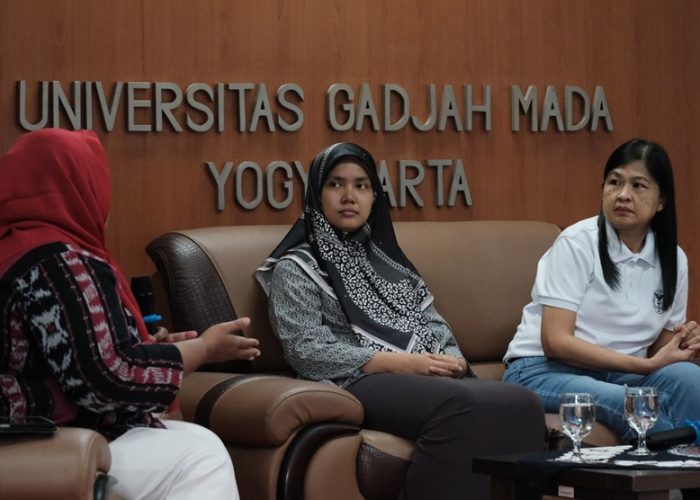Yogyakarta, 29 July 2024 – The 7th International Summer Course in Sustainable Development: Sustainable Bioprospecting of Tropical Biodiversity is officially opened. This annual event organized by the Faculty of Biology, Universitas Gadjah Mada, started its offline agenda after opening its online session Monday (15/7) which was followed by a series of guest lectures from various experts from around the world.
At least 33 offline participants took part in the opening of the International Summer Course (ISC), located in the Seminar Room, Library and Archives Building, Universitas Gadjah Mada. The participants consisted of 27 international students and 6 local students. Coupled with online participants, this year ISC succeeded in attracting 58 participants from 14 countries including Indonesia, Malaysia, Japan, the Philippines, Thailand, Pakistan, the Netherlands, the United Kingdom, India and Egypt.
“Let’s leverage our collective wisdom to foster biodiversity for a greener, more resilient world,” said Dr. Eko Agus Suyono, M.App.Sc., Vice Dean for Research, Community Service, Collaboration and Alumni Affairs, Faculty of Biology UGM in his speech, Monday (29/7).
Ir. Wiratni, S.T., M.T., Ph.D. as Secretary of the Directorate of Global Partnerships and Relations at UGM then delivered her remarks. She expressed her welcome and appreciation for the arrival of participants from various countries to take part in the summer course this time. ISC was officially opened by awarding pins and hats to two participant representatives by Dr. Eko and Dr. Wiratni, followed by a Kalimantan traditional dance performance by postgraduate students from the Faculty of Biology UGM.
The next series of offline lectures was held after the opening of ISC on Monday morning, presenting speakers from various countries. The lecture series began with the first panel presentation by Dr. Siti Fatimah from Universiti Tun Hussein Onn Malaysia, and Dr. Alona Linatoc from the University of the Philippines Los Banos, moderated by Ludmilla Fitri Utari M.Si.. The two panelists delivered material on the topic of ethnobotany, highlighting the interaction and role of the ecosystem environment and humans in it. Ethnobotany emphasizes the various cultures of various regions and how the people in them use local plants and their ecosystems (SDG 15).
The second panel presented two panelists from the Institute of Animal Hygiene and Veterinary Public Health, University of Leipzig, Germany, Dr. Ahmed El Wahed and Prof. Uwe Truyen with moderator Dr. Abdul Rahman Siregar. Both delivered material related to maintaining biodiversity for sustainable health “One Health”. Both touched on The One Health Joint Plan of Action through collaboration involving various parties, researchers from various parts of the world to alleviate world health problems (SDG 3).
The next panel related to natural products and bioprospecting was presented by Dr. Tri Rini Nuringtyas from the Faculty of Biology UGM, and Dr. Nor Ismaliza from Tunku Abdul Rahman University, Malaysia, moderated by Woro Anindito Sri Tunjung, Ph.D. Dr. Nuning and Dr. Nor delivered an interactive presentation regarding the use of various natural materials into products with potential economic value (SDG 15 and 8).
The final panel, entitled Genetic Bioresource, was delivered by Konsorn Srikulnath, Ph.D. from Kasetsart University, Thailand, moderated by Dr. Aprilia Sufi Subiastuti. He explained about the research unit at his institution “Animal Genomic and Bioresource Research Unit” (AGB Research Unit) which focuses on studying animal genomics including bulls (genetic monitoring), chickens (increasing gene varieties), fish and crocodiles (SDG 14 and 15).
All participants were enthusiastic in attending the series of openings and lectures. The activities will be continued with cultural trips and field lectures with various interesting destinations related to the big theme of this year’s summer course, bioprospection. The 7th International Summer Course in Sustainable Development is expected to become a forum for collaboration between students, lecturers and researchers, and become a discussion forum for increasing the potential for sustainable education and research (SDG 4 and 17).









